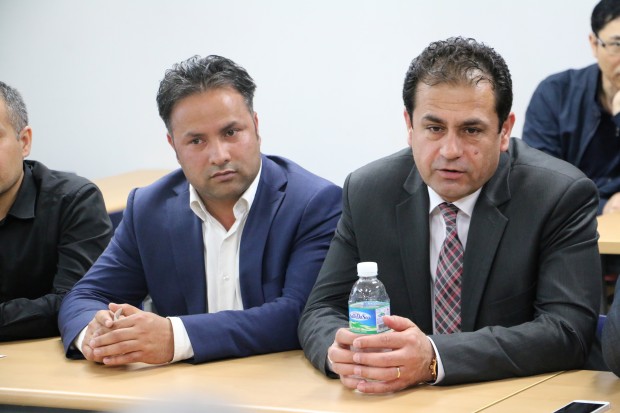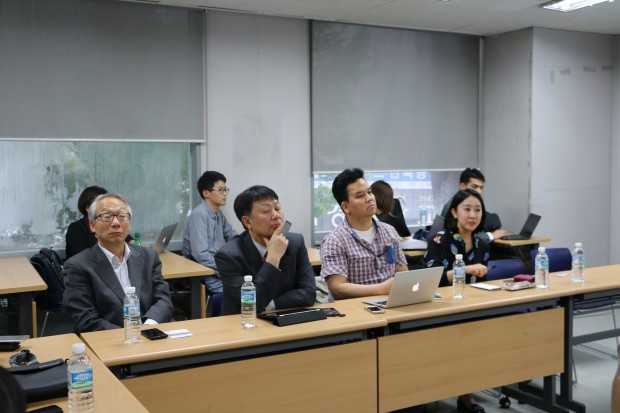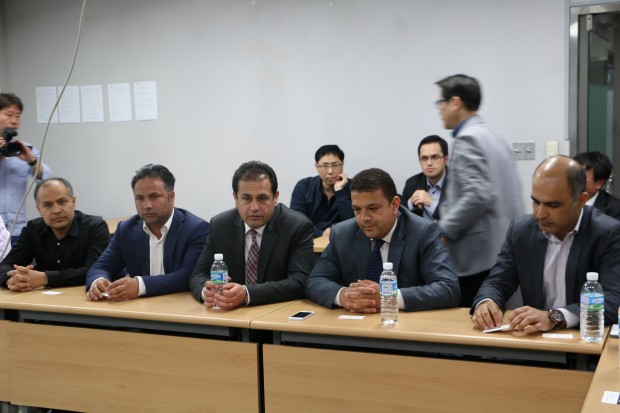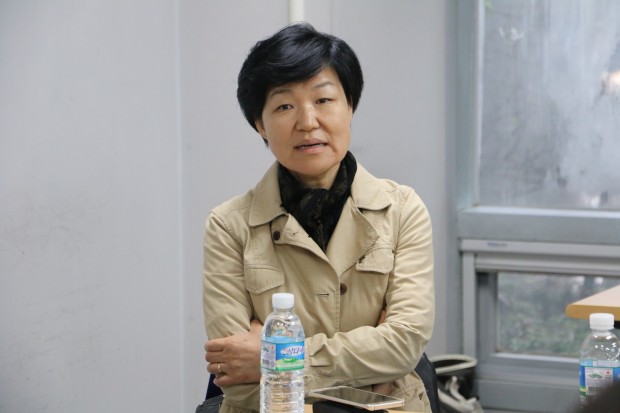Afghan and Korean Journalists Discussed the Media
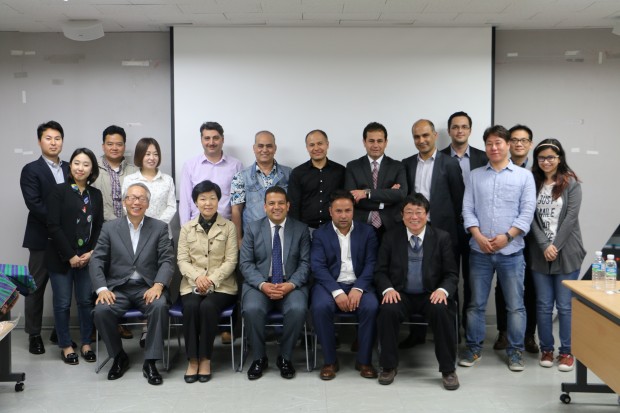
Asia Journalist Association (AJA) organized a workshop with the major journalists from Afghanistan on 27 April in Seoul.
Korea-Afghanistan Media Workshop was held on 27 April in Seoul.
Major Korean and Afghan journalists discussed the media mechanism and freedom in the world.
Asia Journalist Association(AJA) organized a workshop with the major journalists from Afghanistan. Lee Sang Ki, the founder president and Ashraf Dali, the president of AJA, made the opening remarks.
Jeongho Nam from Joongangdaily, pointed out the importance of media freedom in South Korea. He added that most of the media are confronted with financial difficulties.
Parwiz Kawa from Afghanistan told that Afghanistan has survived under terrorism and invasion for decades: “The situation of media gradually improved and today approximately 50 TV and radio channels are available in Afghanistan. We can say that today our media freedom is better than China, Pakistan, Turkmenistan, and Tajikistan. We have some problems with investigative journalism. Additionally, there are some threats from Taliban but we follow the way of the constitution for our freedom.”
Waheedullah Massaud, the BBC editor said that foreign journalists are working in the same situation as local journalists and they try to get news in difficult conditions.
Jinsook Lee, CEO and President of Daejeon MBC, when asked about how Korean media get information on North Korea, talked about the issue in details. She categorized sources of information on North Korea into several groups: direct contact with North Korean media outlets such as KCNA, Rhodong Shinmun, Chosun Central TV, etc, by the South Korean media, Western media sources like AP or CNN based in Pyongyang, American sources such as VOA, RFA, 38 North website, Korean and US intelligence sources, and North Korean people who escaped North Korea. Lee added that even though it is not easy to verify all information independently regarding North Korea but that at least the South Korean media has more diverse sources than before to let the Korean audience and readers get basic information such as North Korea’s nuclear tests, SLBM tests, and Kim Jong Un’s activities.
Ashraf Dali, the president of AJA talked about the available image of Afghanistan: “We know Afghanistan with only war and terror news. Nobody knows the reality of other Afghanistan which has ordinary daily life, cultural values, and dynamic people. Soldiers visited this country instead of tourists. There is a big responsibility for the media about this issue. We would like to know about other Afghanistan.”
As an addition to media activities, journalists discussed civil society initiatives, education institutions in Afghanistan, gender issues and political situation in the region.
Participants: Waheedullah Massaud, the BBC editor, Muhammad Sharif Hassanyar, Ariana TV, Abdul Rahim Azizi, Khurshid TV, Ahmad Fawad Haydari and Parwiz Kawa, Journalists Safety Committee joined to workshop along with Jinsook Lee, MBC, Jeongho Nam, Joongandilbo, Youngme Kim, ethnic conflicts reporter, Jihye Kim, reporter and Sue Gyung Won, reporter of News Tomato.